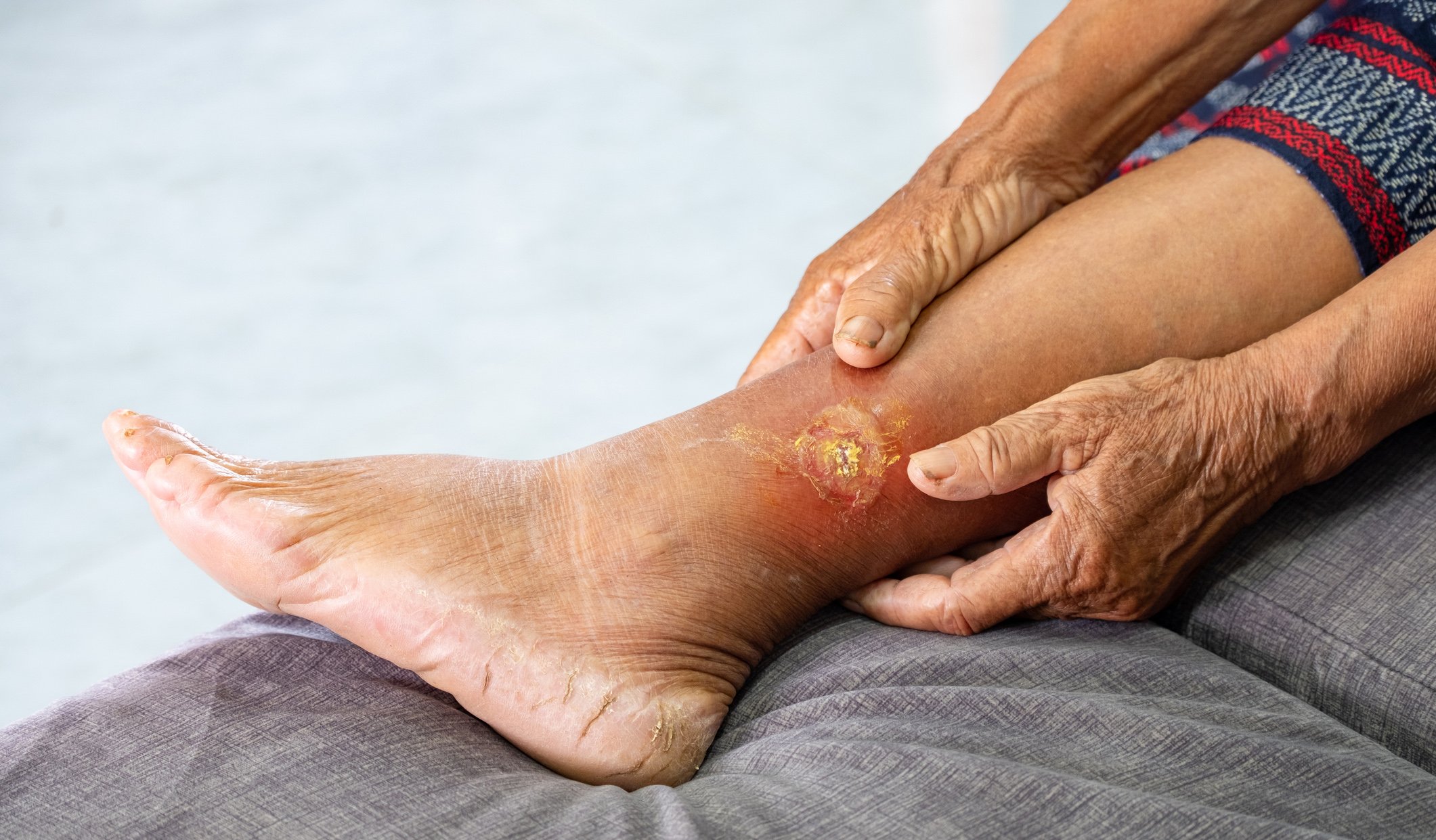The goal of a large-scale intervention study was to find out whether the health of pregnant women and their children could be influenced by a lifestyle intervention program. Among other things, the women’s supplementation behavior with regard to micronutrients during and after pregnancy was also surveyed.
As part of the Healthy Living in Pregnancy (GeliS) study ( box ), women in the intervention group (EG) received several counseling sessions on nutrition, exercise, and adequate weight gain during pregnancy, in parallel with routine preventive examinations, as well as another session after the birth of the child [1]. They were also informed about appropriate nutrient supplementation. Women in the control group (KG) underwent routine prenatal care. A research team examined the impact of targeted counseling on supplementation behavior during and after pregnancy. Intake of nutrient supplements was recorded in both groups at different time points using a questionnaire [1].
| GeliS study The GeliS study is a multicenter, prospective, clusterrandomized, controlled, open-label intervention study conducted in ten Bavarian administrative districts [2,6]. For each administrative district, one intervention region and one control region were selected that were comparable in terms of birth rate and demographic parameters. Lifestyle counseling sessions for the intervention group occurred at three time points each between the 12th-16th, 16th-20th weeks of the study. and 30-34 weeks’ gestation (SSW) and were performed by midwives, medical assistants and gynecologists specially trained for this purpose. After birth (6th-8th week post partum), another consultation took place [6]. |
Results regarding supplementation behavior
In total, data from 2099 women were included in the analysis [2]. The mean age was 30.2 years and the mean pre-pregnancy BMI was 24.3 kg/m2. About one-third of the women were classified as obese. A secondary school diploma was reported by 15.7%, while 42.2% reported a high school diploma and 42.1% a high school diploma or a university degree. The proportion of first-time mothers was 62.4% in the intervention group (EG) and 53.6% in the control group (KG).
In the EC, 31.3% of women supplemented folic acid preconceptionally. while this proportion was 31.4% in the KG [2]. Prenatally, about half of the women were taking folic acid (EC: 54.1%; bw: 52.0%) and iodine (EC: 50.2%; bw: 48.2%). 23.0% of all women reported substituting docosahexaenoic acid (DHA) during pregnancy, and about one in five (21.8%) took iron as a dietary supplement. With regard to vitamin D, the corresponding proportion was 49.4%.
Overall, there were no statistically significant group differences in supplementation behavior, either before study inclusion or during the intervention. Higher age (p<0.001), higher educational attainment (p<0.001), primiparity (p<0.001), and a vegetarian diet (p=0.037) were associated with higher nutrient supplementation.
| Recommendations for folic acid and iodine supplementation It has been repeatedly demonstrated that folic acid and iodine supplementation is a beneficial prevention strategy for maternal and child health [2,7,8]. Specifically, according to current recommendations, women planning pregnancy are advised to take an additional 400 µg of folic acid daily at least four weeks before conception until the end of the 1st trimester. If folic acid supplementation begins less than four weeks before conception, the dosage should be increased [5]. Folic acid supplementation before pregnancy until the end of the 1st trimester can significantly reduce the risk of neural tube defects [7]. In addition to folic acid intake, it is recommended to add 100-150 µg of iodine daily during pregnancy and 100 µg of iodine daily after pregnancy until the end of lactation to reach the total recommended intake of 230 and 260 µg per day, respectively [4,5]. Studies show that a deficit in iodine supply is associated with higher rates of miscarriage and stillbirth and may have an unfavorable effect on the physical and mental development of the growing child [8–10]. |
Preventing folic acid and iodine deficiency is crucial
In summary, GeliS lifestyle counseling had no significant impact on women’s supplementation behavior during and after pregnancy. However, the study authors point out that it is important to educate women early on about adequate nutrient supplementation as part of their gynecologic care. It is known that around pregnancy there is sometimes an increased need for vitamins, minerals and trace elements [2]. Although the requirements of many nutrients can be ensured by a varied and balanced mixed diet, folic acid and iodine are exceptions in this respect [2–4]. Therefore, it is recommended to ensure the increased folic acid and iodine requirement already before or at the beginning of pregnancy additionally by supplements to avoid an undersupply (box) [5].
Literature:
- Günther J, et al: “Healthy living in pregnancy”- results of the GeliS lifestyle intervention study, www.dge.de/fileadmin/public/doc/wk/2019/DGE-Proc-Germ-Nutr-Soc-Vol-25-2019.pdf,(last accessed 31.03.2023).
- Geyer K, et al: Nutrient supplementation before, during, and after pregnancy: results of the cluster-randomized “Healthy Living in Pregnancy” study. Obstetrics Gynecd 2022; 82(07): 736-746.
- Berti C, et al: Micronutrients in pregnancy: current knowledge and unresolved questions. Clin Nutr 2011; 30: 689-701.
- DGE, OGE, SVE, Swiss Society for Nutrition Research (eds.): Reference Values for Nutrient Intakes. 2nd ed., 6th updated edition. Bonn: DGE 2020.
- Koletzko B, et al: Diet and Lifestyle Before and During Pregnancy – Practical Recommendations of the Germany-wide Healthy Start – Young Family Network. Geburtshilfe Frauenheilkd 2018; 78: 1262-1282.
- Rauh K, et al: Healthy living in pregnancy: a cluster-randomized controlled trial to prevent excessive gestational weight gain – rationale and design of the GeliS study. BMC Pregnancy Childbirth 2014; 14: 119.
- Viswanathan M, et al: Folic acid supplementation for the prevention of neural tube defects. JAMA 2017; 317: 190.
- Federal Institute for Risk Assessment. Iodine, folate/folic acid and pregnancy – advice for medical practice. Accessed September 8, 2021, www.bfr.bund.de/cm/350/jod-folat-folsaeure-und-schwangerschaft.pdf
- Bougma K, et al: Iodine and mental development of children 5 years old and under: a systematic review and meta-analysis. Nutrients 2013; 5: 1384-1416.
- Redman K, et al: Iodine Deficiency and the Brain: Effects and Mechanisms. Crit Rev Food Sci Nutr 2016; 56: 2695-2713.
HAUSARZT PRAXIS 2023; 18(4): 38











